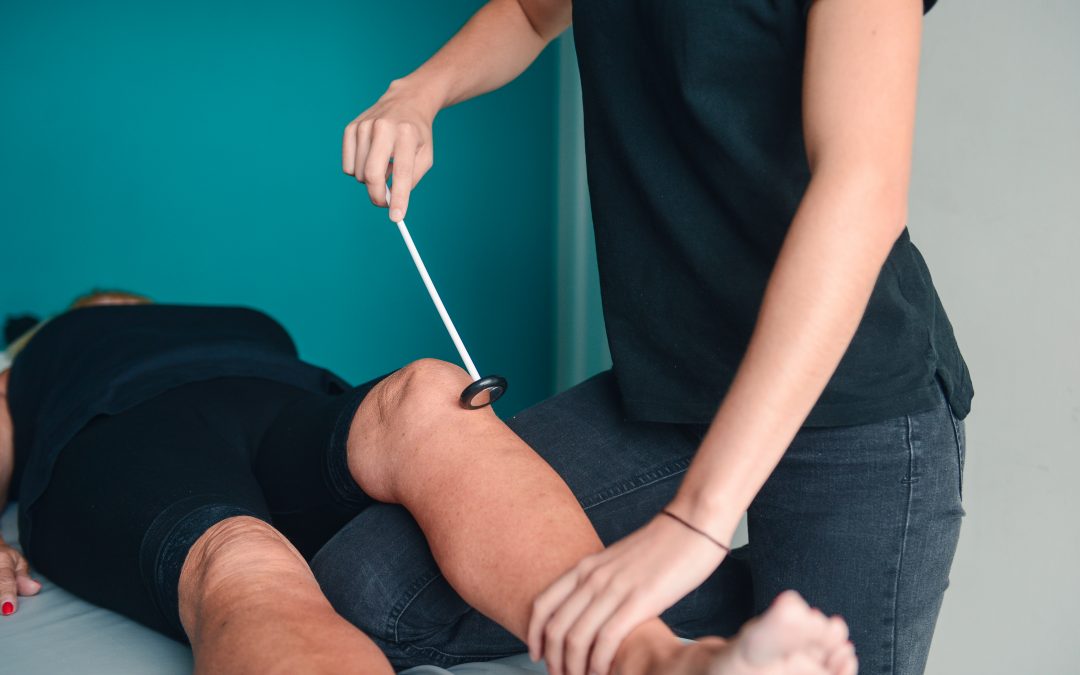Feeling a Nerve Pinch? You’re Not Alone
Imagine waking up one morning to a sharp, tingling sensation in your arm, or perhaps a numbing pain that trails down your back to your legs. It’s unsettling, uncomfortable, and undeniably hard to ignore. This could be your body signaling a pinched nerve, a common yet often misunderstood condition that affects countless individuals each year. At OsteoAllies, we understand how these symptoms can be more than just a physical nuisance—they can impact your daily life, mental health, and overall well-being.
Identifying the Culprit: Do I Have a Pinched Nerve?
Pinched nerves occur when too much pressure is applied to a nerve by surrounding tissues, such as bones, cartilage, muscles, or tendons. This pressure disrupts the nerve’s function, leading to the telltale signs of pain, numbness, tingling, or weakness. These symptoms can vary widely in intensity and can affect different parts of your body, depending on the nerve involved. For instance, a pinched nerve in your neck might manifest as pain radiating down an arm, while a pinched sciatic nerve often leads to symptoms running through the buttock and down the leg.
Symptoms Unveiled: Understanding Your Body’s Signals
The body has its way of sounding the alarm when something is amiss. With pinched nerves, you might experience a range of symptoms that can serve as clues to the underlying issue:
- Sharp, aching, or burning pain, which may radiate outward
- Numbness or decreased sensation in the area served by the nerve
- Tingling, pins and needles sensations (paresthesia)
- Muscle weakness in the affected area
- Frequent feeling that a foot or hand has “fallen asleep”
The intensity and nature of these symptoms can help in diagnosing a pinched nerve, but they also underscore the importance of professional evaluation and guidance.
The Road to Recovery: How Long Is the Journey?
One of the most pressing questions on the minds of those suffering is, “How long will this last?” The duration of recovery from a pinched nerve can vary greatly, depending on the severity of the nerve compression and your response to treatment. Many find relief within a few days to weeks with proper care, including rest, physical therapy, and sometimes medications to reduce inflammation and pain. However, more severe cases may take longer to heal, and ongoing management strategies may be necessary to prevent recurrence.
To Operate or Not to Operate?
Surgery for a pinched nerve is generally considered a last resort. In many cases, non-surgical treatments such as physical therapy, osteopathy, or chiropractic care can provide significant relief. Surgery might be discussed if conservative treatments fail to improve your condition or if the nerve compression is causing severe weakness, loss of function, or problems with controlling your bowels or bladder.
Choosing the Right Path: Osteopath, Chiropractor, or Physiotherapist?
Deciding who to see for treatment can feel like navigating a maze. Each professional brings a unique approach to the table:
- Osteopaths focus on the body’s overall function and tend to use a variety of techniques, including stretching, massaging, and mobilizing, to relieve pain and restore movement.
- Chiropractors primarily concentrate on diagnosing and treating musculoskeletal issues, often through spinal manipulation.
- Physiotherapists aim to improve your physical activity while preventing further injuries through exercises, movement, and education.
Your choice may depend on your specific symptoms, preferences, and overall health goals. At OsteoAllies, we’re here to help guide you towards the best fit for your situation.
Treatment Without Discomfort: What to Expect
Worrying about the treatment process is natural, especially concerning privacy and comfort. Rest assured, professional standards ensure that you’re treated with respect and care throughout your consultation and treatment. You’ll only need to expose the area being treated, and your comfort and consent are always prioritized.
Will Treatment Help? Yes, Here’s How
Treatment can offer significant relief and is often highly effective in managing pinched nerve symptoms. Through a combination of targeted therapies, lifestyle adjustments, and sometimes medication, many patients experience substantial improvement. Our goal is to not only alleviate your immediate discomfort but also to empower you with strategies to prevent future issues.
Sciatica: A Special Case of Pinched Nerve
Sciatica is indeed a type of pinched nerve, where the sciatic nerve is compressed or irritated. It’s a prime example of how a pinched nerve can significantly impact your life, with symptoms ranging from mild aches to severe, debilitating pain. Understanding sciatica’s nuances highlights the importance of accurate diagnosis and tailored treatment plans.
You’re Not Alone in This Journey
At OsteoAllies, we’re committed to walking alongside you every step of the way. From understanding your symptoms to finding the path to recovery that suits you best, we’re here to support, guide, and empower you. Remember, a pinched nerve doesn’t have to put a pause on your life. With the right care, you can get back to feeling your best.
Conclusion
Pinched nerves can be a painful detour, but they don’t have to lead to a dead end. With the right knowledge, care, and support, you can navigate this challenge and emerge stronger on the other side. If you’re experiencing symptoms or have concerns about pinched nerves, reach out to us at OsteoAllies. Let’s work together towards a healthier, pain-free future.

